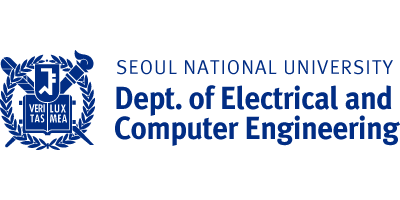Professor Jong-Seon No developed the world’s most advanced AI technology for privacy guarantee (2022.07.19)
The team developed a technology that processes encrypted data through an AI model at high speeds by utilizing a novel high-precision homomorphic encryption.
-Was developed for the first time in the world, and the team published papers at top conferences in the field of cryptologic research for two consecutive years.
-Plans to put the world’s best homomorphic encryption technology and the AI convergence technology into practical use early on.
Professor Jong-Seon No
The SNU College of Engineering (Dean Hong-Yoo Seok) developed a high-precision computation AI technology on fully homomorphic encryption. The research was done by Professor Jong-Seon No of the Department of Electrical and Computer Engineering.
With the developed high-precision homomorphic encryption technology, which increased the precision of real number operations, CKKS homomorphic encryption can now be used in any complex applied services. In addition, Professor No’s research team developed a technology that processes encrypted data through an AI model at high speeds by utilizing a novel high-precision homomorphic encryption.
The technology proposed in this study is more than 134 times faster than the privacy guarantee AI technology developed by the same research team in 2021.
In this study, it was proven for the first time in the world that homomorphic encryption, which was previously applied to a ResNet with 20 layers, can be applied to a ResNet with 110 layers. The two technologies, which will be presented at EUROCRYPT and ICML, allow encrypted data to be analyzed in a high-performance practical AI model, making the team holders of the world’s most advanced PPML (Privacy Preserving Machine Learning) technology.
As the importance of privacy grows, data privacy laws have been strengthened in the United States, and the importance of data security has also grown in Korea to a greater extent with the enactment of the three major data policies.
In particular, homomorphic encryption-based AI technology was known as the best solution to provide necessary data analysis services while simultaneously securing the data within the machine learning model or other relevant data, but due to complications such as problems with the speed and accuracy of homomorphic encryption operations, there were limitations to its use.
An overview of the technology introduced in the study
However, with the technology developed by Professor No’s research team, it is possible to encrypt medical images or personal financial information and securely send them to a server for processing using artificial intelligence.
Moreover, in 2021, Gartner of the US pointed out homomorphic encryption as one of the 5 technological innovations of the future, and DARPA of the US Defense Ministry is also developing a technology to speed up homomorphic encryption for artificial intelligence, thereby escalating the global race for the homomorphic encryption technology.
The technology developed by Professor No this time is a result of convergence involving encryption technology and AI technology, and the papers were accepted and presented at the most renowned academic conferences in both fields.
Professor No’s work, which utilizes existing AI models as they are, demonstrated improvements in the speed and accuracy of the existing homomorphic encryption, and can process encrypted data within the time frame that the model takes to process plain text data.
In particular, from May 30th to June 3rd, the research team gave a presentation titled ‘High Precision Bootstrapping for Approximate Homomorphic Encryption by Error Variance Minimization’ at EUROCRYPT 2022, which was held in Norway, thereby achieving the feat of having two papers accepted to the conference for two consecutive years.
Compared to the results of the paper presented at EUROCRYPT in 2021, the result of this year’s paper demonstrates precision levels that increased by more than 1,000 trillion times (50 bits), which enables efficient implementation of double precision real number calculation widely used in computers.
Professor No and Researcher Joon-Woo Lee of Seoul National University, Professor Young-Sik Kim of Chosun University, Professor Yong-Hun Kim of DGIST, and Researcher Yong-Woo Lee (1st author) and Hyung-Chul Kang of Samsung Advanced Institute of Technology participated in EUROCRYPT 2022 together.
Furthermore, Dr. Eun-Sang Lee (1st author), Researcher Jun-Woo Lee, Researcher Jeong-Hyeon Lee, and Professor Yong-Jun Kim of DGIST, Professor Yong-Sik Kim of Chosun University, Researcher Woo-Seok Choi of Samsung Advanced Institute of Technology, along with Professor No participated in ICML 2022.
The research team will work on improving the performance of homomorphic encryption-based privacy-guaranteed AI technology through optimized parallelization and by making use of a more efficient implementation of the homomorphic operation algorithm. Their goal is to put the world’s best homomorphic encryption technology and the AI convergence technology into practical use early on.
Source: https://ece.snu.ac.kr/community/news?bm=v&bbsidx=52619
Translated by: Do-Hyung Kim, English Editor of the Department of Electrical and Computer Engineering, kimdohyung@snu.ac.kr


